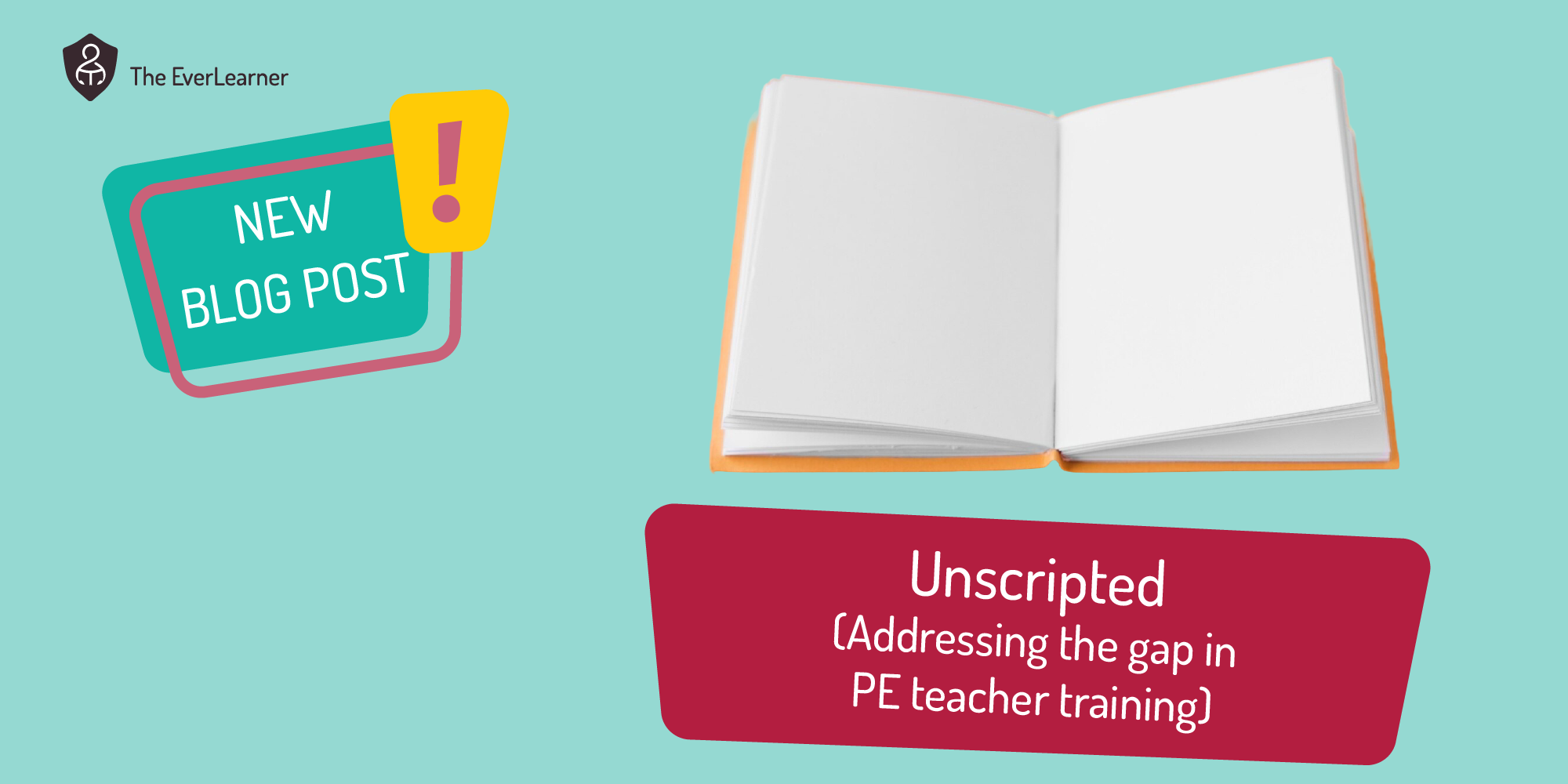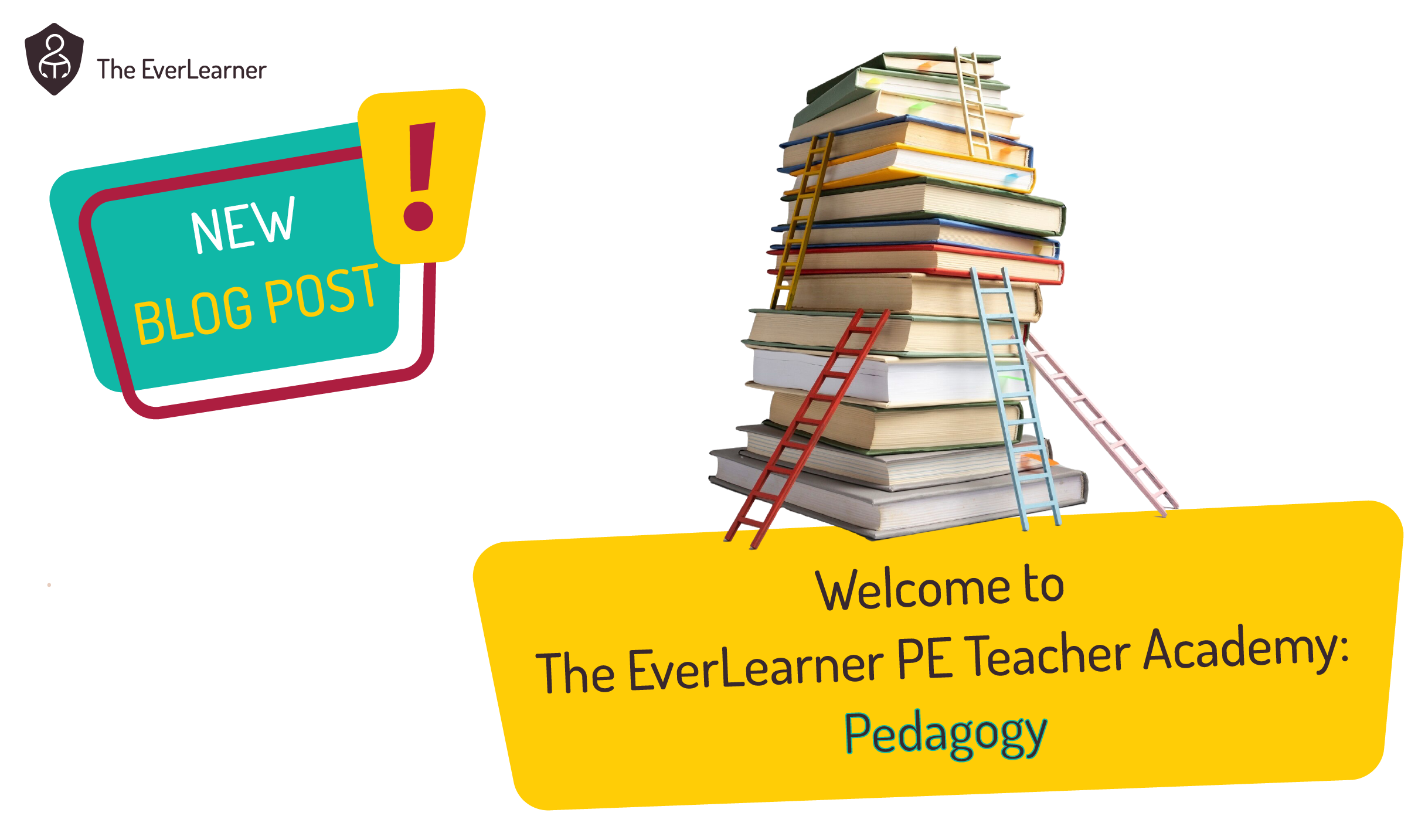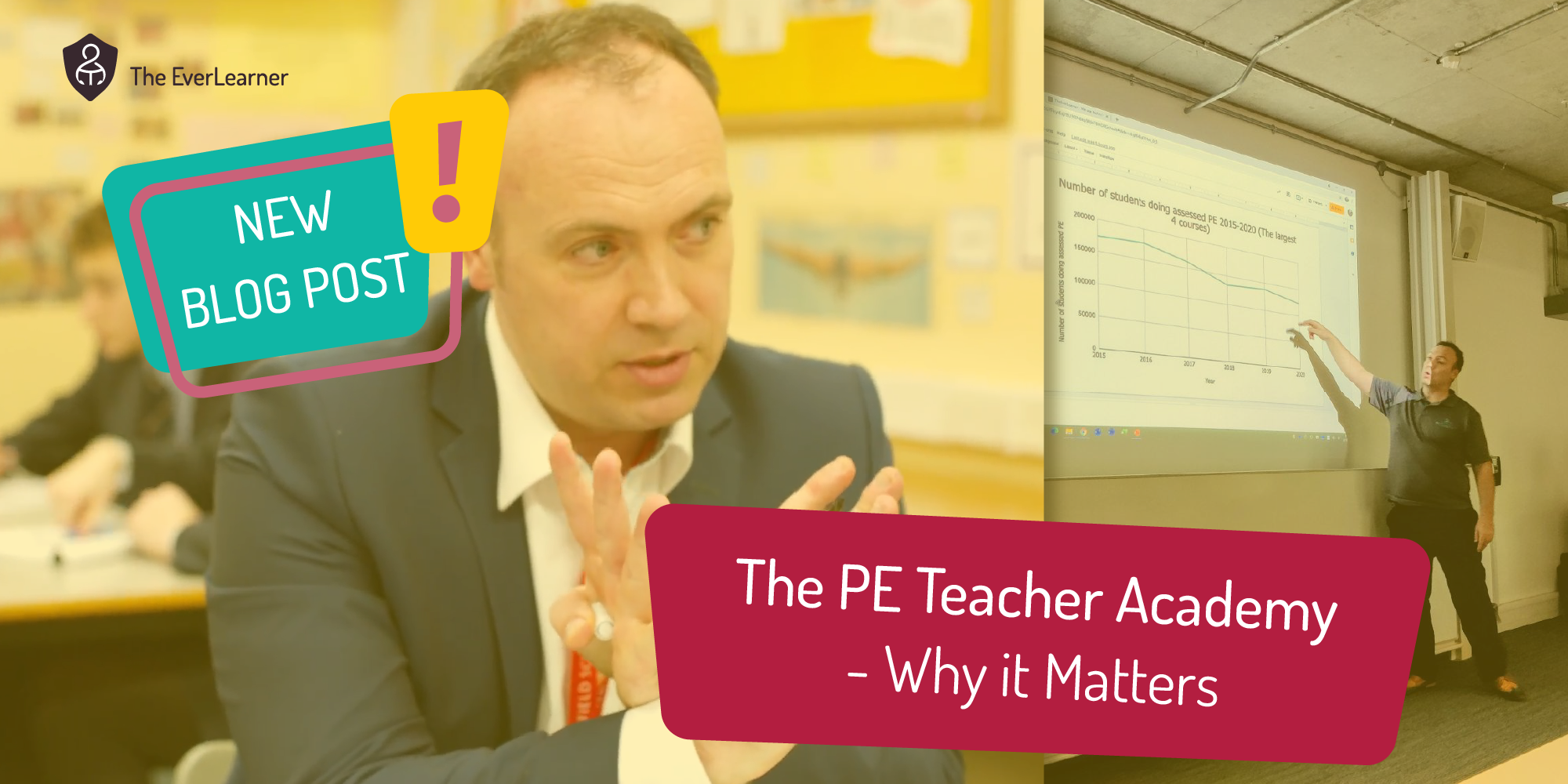Welcome to The EverLearner PE Teacher Academy Part 2: Cognitive science
Dear PE colleagues,
This week, in Part 2 of the series on the new PE Teacher Academy service, I wish to guide you about cognitive science in PE teaching.
All of you who read last week’s post about pedagogy will find this week’s post a natural progression as, of course, most pedagogical successes in classroom PE teaching are directly linked to associated cognitive science research, which shows us how and why certain techniques are more effective than others (Read last week's post here: Welcome to The EverLearner PE Teacher Academy Part 1: Pedagogy).
This week, we will focus on cognitive science and ensure that our learning and applications are specific to PE teaching.
What is The EverLearner PE Teacher Academy?
The brand-new academy is a plethora of online courses that PE teachers can learn from at the exact rhythm and designation that suits them. Moreover, it is CPD directly and continuously applied to PE teaching specifically, and not a generic teacher CPD environment. Put bluntly, and whilst we love them dearly, science, history, maths and geography teachers are not invited to take part in our Academy. Our Academy is for us. It is for PE teachers, and every element of learning is applied to our environment.Courses are offered across five specialisms:
|
Section: |
PE Pedagogy | PE Curriculum | PE Subject Knowledge | PE Cognitive Science | PE Course Design and Assessment |
Each section of the Academy has its specific purpose:
|
Section: |
PE Pedagogy | PE Curriculum | PE Subject Knowledge | PE Cognitive Science | PE Course Design and Assessment |
|
User story: |
As a PE teacher, I want to learn how to set up a classroom, run learning activities and provoke my students to learn deeply and broadly in physical education. | As a PE teacher, I want to develop an intricate knowledge of the specific qualification that my students need to learn and I need to teach. | As a PE teacher, I want to learn the fundamental principles of my subject without the straitjacket of it being for a specific qualification. I want to be able to learn ideas that will allow me to teach from KS3 to KS5. | As a PE teacher, I want to understand what scientific research suggests are the ways in which human beings learn, remember and forget. I want to study these things in the specific context of PE teaching and learning. | As a PE teacher, I want to be proactive in setting up and maintaining reliable and sustainable structures for my PE qualifications. |
Notice that, for each user story, the statement begins with the words “As a PE teacher,...”. These courses are PE-specific!
Cognitive science via the PE Teacher Academy
A broad understanding of cognitive science research and how this can be applied to PE teaching and learning is an essential ingredient for a PE teacher to learn their trade.
(The elements in green indicate the courses available to PE teachers immediately, whereas those in yellow are courses being considered for future development.)
| Foundations | Remembering and forgetting | Spacing and interleaving | Dual coding | Metacognition |
| Introduction to cognitive science | Introduction to remembering and forgetting | Spacing in the PE classroom | Dual coding in the PE classroom 1 | Metacognition and PE students 1 |
| The spacing effect and the PE classroom | Ebbinghaus and the PE classroom | Interleaving in the PE classroom | Dual coding in the PE classroom 2 | Metacognition and PE students 2 |
| Thalheimer and the PE classroom | Paivio's research applied to PE teaching | |||
| Rosenshine and the PE classroom | Caviglioli's work applied to PE teaching |
Looking back at the image above, you will notice that concepts such as:
- remembering and forgetting
- spacing
- interleaving
- dual coding
- metacognition
You may also notice that numerous researchers and thinkers are referenced in the courses, but that all of their work is considered in its application to PE teaching and learning specifically.
For these reasons, I endorse the study of cognitive science within The EverLearner PE Teacher Academy, and I hope that you may choose to join us there very soon.
Finally, I would like to take this opportunity to remind you of what the mission of my team and I is. This is the reason we are developing the Academy, and this is the reason why we strive so hard to make an impact in the PE sector:
To radically improve the PE achievements of all students and transform the PE-teaching sector into the best-trained and highest-performing classroom teaching network in the world.
Thank you for reading and have a lovely day. Don't forget to register your interest, if you haven't done so already 👇:
%20Text%20(Violet).png)



